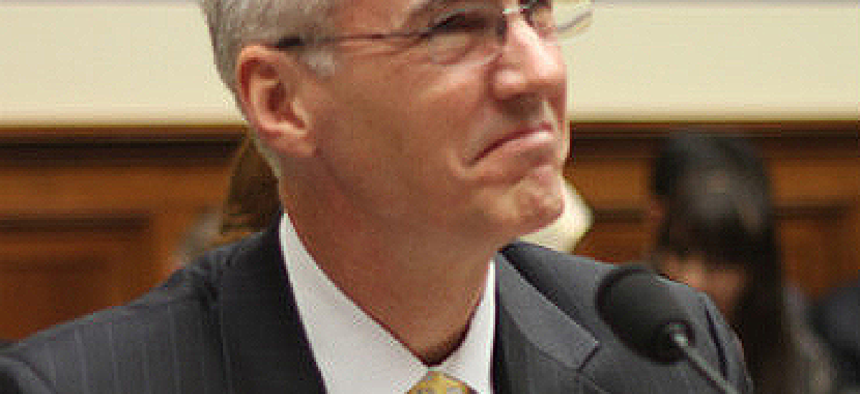Can agencies make the most of FITARA?

At the Executive Leadership Conference, FITARA authors and implementers discussed what it will take to truly put the law into effect.

Former DHS CIO Richard Spires is working with ACT-IAC to help agencies use FITARA to improve their IT management.
Nearly a year has passed since the Federal IT Acquisition Reform Act was signed into law, and implementation efforts are well underway. But during an Oct. 26 discussion at ACT-IAC's Executive Leadership Conference, FITARA authors and implementers agreed that real results hinge on how well agency CIOs can transform their new statutory authority into measurably better IT management.
"Now is really the time for you to take those tools and run with [them]," Senate Appropriations Committee staffer Kevin Cummins said. "And Congress will be watching."
Former House aide Rich Beutel, who was a primary author of FITARA and is now principal at Cyrrus Analytics, told the audience that what was originally conceived of as strictly an acquisition reform evolved into a much broader effort.
"Really what's at stake here is the value of IT as an instrument to drive innovation and to deliver 21st-century government services," he said.
Transportation Department CIO Richard McKinney, who was an early and vocal advocate for the legislation, said his interest in FITARA was simple. The law centralizes IT purchasing to a significant degree and gives department-level CIOs more authority over their colleagues at component agencies and bureaus, but McKinney stressed that empire building held little appeal. For him, the motivation was the simple fact that legacy IT systems at DOT were unsustainable.
"We were headed for 2020 with a 1980s construct, and it [was] not going to end well," McKinney said. With the current jumble of siloed systems, "we're never going to be able to get the value out of it, and we're not going to be able to secure it."
Richard Spires, former CIO at the Department of Homeland Security and now CEO of Learning Tree International, said what happens next at agencies will be critical. It all comes down to governance models, he added -- the official structures that are part of agencies' implementation plans and the trust and collaboration that must be forged in practice.
"None of this is technology challenges," Spires said. "They're all cultural."
The early indications are that "agencies are all over the map" with implementation, he added. Although he has not been privy to the specific plans, conversations with various CIOs have made it clear that some agencies are well on the way to making changes, but "there are departments that have really struggled with this."
He urged agencies to consider using the toolkit ACT-IAC is developing for FITARA implementation, which includes an IT management maturity model.
"We're not forcing this on anybody," Spires said, "but we really believe this is the way you should be organizing your agency IT."
Metrics are also essential, and Spires said discussions are underway about key performance indicators for FITARA -- beyond basic cost savings -- that could be recommended to the Office of Management and Budget.
"You can actually measure...how you are improving on your ability to deliver programs," he said. But the most important performance indicator is "how does IT improve over time, whatever it is that your agency does?"
Cummins, meanwhile, said the Government Accountability Office is working on a scorecard to measure how agencies are doing on FITARA implementation. No CIO wants to be at the bottom of such a list, and "you can expect to see more hearings and oversight."
Beutel acknowledged that agencies are still struggling to find funding for the IT modernization efforts that FITARA's reforms are intended to spark. The House version of the legislation originally provided for a revolving capital fund for IT modernization, and "we're hopeful that...we can go back and re-address that issue," he said, adding that there is a lot of interest in finding new funding solutions.
And McKinney, who said his department's FITARA plan had come back from OMB with just a few requested changes and was essentially done, welcomed the suggestions of continued oversight and attention to implementation.
"The status quo has some amazing inertia, and we're just trying to overcome that," he said. "I believe Congress has a right -- and the American people have a right -- to expect a whole lot better out of us."


